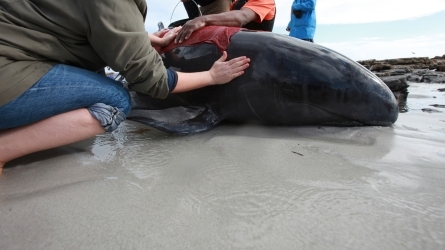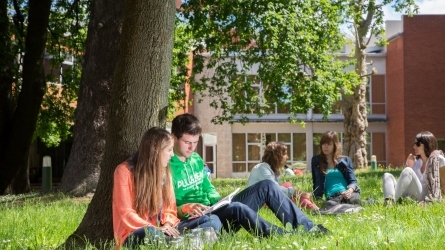
LIVE ONLINE COURSE - University and sustainability: travelling companions for a great mission
Description
In September 2015, the United Nations published a new agenda to transform the world: the 2030 Agenda for sustainable development, with 17 objectives and 169 goals. This is the first international agenda that refers to university education and that directly challenges the higher education institutions, which have been called to be one of the protagonists of this mission.
During this first third of the agenda (2015-2020), numerous awareness campaigns have been launched both at the european, state, regional or local levels. It is usual to meet with talks, conferences and seminars in which several social, economic, cultural or political agents discuss this new road map. In universities and scientific community there is also a shared concern about many of the problems posed by the agenda. Nobody loses sight of emergency situations related to the dramatic processes of pauperization and discrimination of people and communities, the ecological deterioration or global warming of the planet as well as the multiple negative consequences directly related to social ways of life that lead the planet to collapse. We all share that this is the way but have we started to walk? Do we have a good pace to reach the destination in 2030?
Public universities are called to set the pace for achieving the 169 operational goals of the agenda at different levels:
- At the level of research contributing in a committed way to the production of knowledge in these problem areas. As Polly Courtice, director of the Leadership Institute for Sustainability at the University of Cambridge points out, "the university's greatest contribution to sustainability is to make sure the evidence is sound."
- At the level of training, articulating mechanisms that introduce the perspective of sustainable development in its broadest conception, both in the curriculums of the degrees and in the university extension.
- At the level of internal management, considering itself a privileged environment of responsible experimentation through its own internal functioning: indicating the change of habits of consumption, health and care, of inclusive, egalitarian and ethical behavior, and, becoming a model that inspires and motivates other organizations.
This Summer Course aims to know and explore the appropriations that universities are making of the agenda's mandate in terms of coherent and global policies that present tangible and verifiable results, beyond isolated and timely activities.
Objectives
Analyze the design and development policies of the 2030 Agenda for sustainable development in the framework of universities from an international perspective.
Present solid strategies and good practices of global and integrated development of the 2030 Agenda in the fields of research, training and internal management of universities.
Present the methodological keys for developing an on-site agenda, as well as the ways to monitor results and demonstrate tangible achievements so that the participants can incorporate their content and discourse into their work contexts.
Analyze the procedures followed by specific rankings, in order to facilitate their understanding by universities.
Activity directed to
- University student
- Teachers
- Professionals
- Institutional managers
Program
29-06-2020
Registro y entrega de documentación / Erregistroa eta dokumentazio-banaketa / Registration and material distibution
Presentation by the Director of the activity
- Itziar Alkorta Idiakez Cursos Verano UPV/EHU - Directora
- Estibaliz Saez de Camara Oleaga UPV/EHU - Directora. Dirección de Sostenibilidad de la UPV/EHU
“Six key transformations to achieve the sustainable development: reflections for public universities / Seis transformaciones clave para el desarrollo sostenible: reflexiones para las universidades públicas“
- Kate Roll Institute for Innovation and Public Purpose (IIPP). University College London) (UCL) - Head of Teaching and Assistant Professor in Innovation, Development and Value
Round table: “Academia and Sustainable Development. University plans and good practices for the implementation of 2030 Agenda / Academia y Desarrollo Sostenible. Planes y buenas prácticas universitarias para la implementación de la Agenda 2030“
- David Alba Hidalgo Universidad Autónoma de Madrid y Transitando - Profesor e Investigador (Moderator)
- Idoia Fernández Fernández Euskal Herriko Unibertsitatea (UPV/EHU) - Berrikuntzaren, Gizarte Konpromisoaren eta Kulturgintzaren arloko errektoreordea
- Rafael MIñano Rubio Universidad Politécnica de Madrid (UPM) - Profesor e Investigador
- Pietro Ceciarini Universitá de Bologna - Research fellow – AlmaGoals. ARTEC - Area Rapporti Imprese, Terza Missione e Comunicazione
“ 17+1 Garapen Iraunkorrerako Helburua. Hizkuntza eta kultura aniztasunaren ekarpena iraunkortasunari / Objetivo de Desarrollo Sostenible 17+1. Aportación de la diversidad lingüística y cultural a la sostenibilidad.“
- Itziar Idiazabal Gorrotxategi Munduko Hizkuntza Ondarearen UNESCO Katedra - Zuzendaria
30-06-2020
“THE developing ranking based on Sustainable Development Goals as an external audit / El ranking THE basado en los Objetivos de Desarrollo Sostenible como auditoría externa“
- Duncan Ross Times Higher Education (THE) World University Rankings - Chief Knowledge Officer
Round table: “Alianzas entre universidades para el desarrollo sostenible: Redes / Unibertsitateen arteko aliantzak garapen iraunkorrerako: sareak“
- Miren Onaindia Olalde Universidad del País Vasco / Euskal Herriko Unibertsiatea - Catedra UNESCO sobre Desarrollo Sostenible y Educación Ambiental de la UPV/EHU (Moderator)
- Ingrid Mulà Pons de Vall Copernicus Alliance - Executive Director
- Josep Maria Vilalta Verdu Global University Network for Innovation (GUNi) - Director of GUNI and Executive Secretary of the Catalan Association of Public Universities (ACUP)
- Igor Campillo Euskampus - Director
- Marta Garcia Haro Red Española para el Desarrollo Sostenible - Directora
- Javier Benayas del Alamo Universidad Autónoma de Madrid (UAM) - Catedrático de Ecología
Synthesis
Directors

Estíbaliz Sáez de Cámara Oleaga
Universidad del Pais Vasco/Euskal Herriko Unibertsitatea (UPV/EHU)
PhD in Environmental Engineering and professor in the ‘Environmental Technologies’ area in the Department of Chemical Engineering of the Environment at the School of Engineering in Bilbao. Since 2017 she is the Director of Sustainability and Social Commitment at the UPV / EHU. She is in charge of promoting and planning, along with the Vice-Rectorrate of Scientific and Social Development and Knowledge Transfer. She is a member of the Academic Committee of the Master Circular Economy: Business Aplication. Furthermore, she is the vicepresident of the Spanish Network for Sustainable Development (REDS).
Speakers
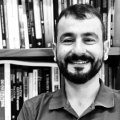
David Alba Hidalgo
Ambientologist and Doctor in Environmental Education, specialized in sustainability assessment at local and university scale He works in the Association “Transitando”, for Ecology and Education for cities’ sustainable transition. There, he develops research and educational and participatory activities related to urban ecology, sustainability policies and evaluation. Appart from this, he is a researcher and associate professor in the Department of Specific Didactics at the Faculty of Teacher Training and Education of the Autonomous University of Madrid (UAM).
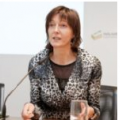
Itziar Alkorta Idiakez
Uda Ikastaroak / Cursos de Verano, Zuzendari akademikoa / Directora académica
She holds a PhD in Law and is a lecturer in Civil Law at the UPV/EHU. Her main line of research is bioethics, a subject on which she has published several monographs and scientific and dissemination articles. She has participated in 4 European research projects of the VI and VII European Framework Programme, as well as in multiple research projects of the National Programme. She has been a visiting professor at the Hastings Center for Bioethics in New York, the Center for Bioethics at the University of Philadelphia and the University of Bordeaux. She was Secretary General of Eusko Ikaskuntza, and later of Jakiunde, Academy of Sciences, Arts and Letters. Vice-rector of quality and teaching innovation at the UPV/EHU between 2008 and 2012, and responsible for the development of the educational model, as well as quality programmes, and training and evaluation of university teaching staff. Between 2013 and 2015, she was Deputy Minister of Universities and Research of the Basque Government.
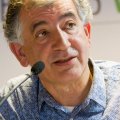
Javier Benayas del Alamo
Full Professor of Ecology at the Autonomous University of Madrid. From 1995 to 2003 he was delegate of the rector of the Environment and from 2003 to 2009 Vice-rector of Campus and Environmental Quality. In 2003, it promoted the creation of the CRUE Working Group on Environment and Sustainability. In 2011 he participated in the Technical Commission of the report "The Social Responsibility of the University and Sustainable Development", responsible of the study "Evaluation of university sustainability policies in Spanish universities" and coordinator of the project "Definition of sustainability indicators in Latin American Universities". Between 2000 - 2012 he coordinated an interuniversity doctorate program about Environmental Education. He has been co-director of the project "Assessment of the Millennium Ecosystems and Biodiversity of Spain". Since 2015 he is Deputy Mayor and Councilor for Urban Planning and Sustainability in Soto del Real and member of the REDS Advisory Council.

Igor Campillo
Euskampus Fundazioa, Director
He is director of Euskampus Fundazioa, founded in 2011 by the University of the Basque Country (UPV-EHU), Tecnalia Corporation and the Donostia International Physics Center (DIPC). He worked as assistant professor in the Faculty of Sciences of the UPV/EHU, international projects manager in Gamesa Energy, researcher and project manager at LABEIN- Tecnalia, project and outreach manager in the Nanoscience Cooperative Research Center- nanoGUNE, manager of the nanoBasque Strategy in the Basque Business Development Agency- SPRI, and director of DeustoTech. He holds a PhD in Physics from UPV/EHU, and a master degree in journalism and science communication from the Spanish Open University. He is the author of more than 70 international scientific publications indexed in the Web of knowledge,and author of 3 international patents. He has been awarded as one of the word-leading “Boundary Spanners” for University Business Cooperation by the University Industry Innovation Network.

Pietro Ceciarini
Researcher at the University of Bologna since 2018, he carries out his research in the field of the Sustainable Development Goals, the circular economy and the urban transition. Research interests focus in particular on the implementation of the SDGs in universities, cities and companies, with a bottom-up approach to sustainable innovation and urban resilience. Expert in startups and social innovation with lean green startup and design bases.
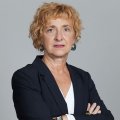
Idoia Fernández Fernández
UPV/EHU, Irakaslea
Idoia Fernández is Professor in te Department of Educational Sciences, University of the Basque Country (UPV/EHU). She has been director of the Educational Counseling Service (2010-2017) and Vice-rector for Innovation, Social Commitment and Cultural Action (2017-2021). He has led several innovation, development and research projects in the field of teaching and learning in Higher Education. She has been Vice-President for Europe of the International Society for the Scholarship of Teaching and Learning (ISSOLT) in 2016-2017 and member of the State Network of University Teaching (REDU) since 2014. Currently she is member of de Governing Board of the Basque Agency for Quality, Unibasq.

Marta Garcia Haro
She is responsible for the Spanish office of the Network of Solutions for Sustainable Development (REDS), an international network sponsored by the United Nations to promote global sustainable development (SDSN). Previously, he has developed his professional career in the cultural sector, where he has directed and coordinated projects for the Fundación Museo Picasso Málaga or the Museo Nacional Reina Sofía, among other institutions. Likewise, it has collaborated since its creation with the INTRA Foundation, an NGO that works for the labor insertion of people at risk of social exclusion, and directs the annual conferences "Sustainability and cultural institutions". She has a degree in Economic Sciences and Art History from the University of Valencia and a Master in management and communication of cultural policies from the LUMSA University (Italy).
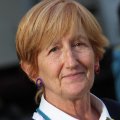
Itziar Idiazabal Gorrotxategi
UPV/EHU
Professor of Basque Philology (1992) and Honorary Collaborator of the Department of Linguistics and Basque Studies at the University of the Basque Country (UPV / EHU). Doctor from the University of Geneva (1983) in the area of Psycholinguistics. He is part of the ELEBILAB research group (https://www.ehu.eus/eu/web/elebilab) where he has directed numerous research projects on language acquisition in bilingual children, on discursive analysis of Basque and on language teaching in bi-multilingual programs (Garcia-Azkoaga & Idiazabal (Eds.) 2015). He has supervised 15 doctoral theses. She is the founder and member of the UNESCO Chair of World Linguistic Heritage of the UPV / EHU https://www.ehu.eus/eu/web/mho-unesco-katedra, where she has recently published a volume on linguistic diversity and sustainable development www .labur.eus / IdiazabalPerezCaurel He is a corresponding member of Euskaltzaindia (Academy of the Basque language).
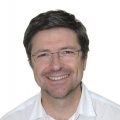
Rafael MIñano Rubio
Universidad Politécnica de Madrid
He is Full Professor at the Polytechnic University of Madrid (ETSI Informatic Systems). His research field is training in social responsibility, sustainability and professional ethics skills in engineering studies. His doctoral thesis focused on cases of computer and industrial engineering. Among his current teaching, there are subjects such as "Ethical and social aspects" and "Science, technology and society”. He is a member of the Center for Innovation and Technology for Development (itdUPM), as well as the Research Group on Sustainable Organizations, of the research team of the EDINSOST 2-ODS project (Integration of the Sustainable Development Goals in the sustainability training of Spanish university degrees) and the group on Curricular Sustainability of the Sectorial CRUE Sustainability.

Ingrid Mulà Pons de Vall
Es profesora e investigadora Beatriz Galindo en la Facultad de Educación de la Universidad de Girona y directora ejecutiva de Copernicus Alliance. Es Doctora en Sostenibilidad por la Universidad de Gloucestershire, especializada en pedagogía transformadora, aprendizaje social y cambio institucional para el desarrollo sostenible en educación superior.
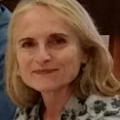
Miren Onaindia Olalde
Facultad de Ciencia y Tecnología. UPV/EHU
Catedrática de Ecología y directora de la Cátedra UNESCO de Desarrollo Sostenible y Educación Ambiental en la Universidad del País Vasco (UPV/EHU). Profesora en la titulación de Biología así como en enseñanzas de Master y Doctorado. Es miembro del Consejo Científico del programa MaB-UNESCO de Reservas de Biosfera Es responsable del Master en Medio Ambiente y Sostenibilidad de la UPV/EHU y ha dirigido 14 Tesis doctorales y 25 Tesis de Master. Ha sido profesora visitante en varias universidades europeas (Universidad de Oxford, U.K.), así como en: Universidad de Veracruz, México; Universidad de Santo Domingo, República Dominicana, Universidad de Nevada-Reno, USA. La temática de investigación se centra en el estudio de la biodiversidad y en la evaluación los ecosistemas, con aplicación a la ordenación sostenible del territorio. Ha publicado diversos artículos en revistas científicas, libros y capítulos de libro, así como publicaciones de carácter docente y divulgativo.
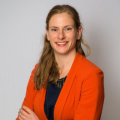
Kate Roll
Dr Kate Roll is a political scientist interested in vulnerability, with a particular focus on the factors that enable people in poverty to gain greater social and economic security. At IIPP, Dr Roll serves as an Assistant Professor in Innovation, Development and Purpose. Dr Roll’s research is broadly divided into two streams, the first concerning economies of peace, with a focus on the politics of benefits programmes for former combatants. The second stream critically engages with private sector approaches to development, particularly ‘base of the pyramid’ route-to-market programmes. Dr Roll holds a DPhil in Politics (2015) and an MPhil in International Development Studies (2011) from the University of Oxford. Dr Roll’s doctoral fieldwork involved logging over 1,000 km on a motorbike, crisscrossing Timor-Leste to conduct a representative survey interviews with over 220 registered former combatants – now one of the largest of its kind.
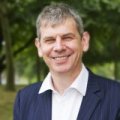
Duncan Ross
He is currently Data and Analytics Director for TES Global, helping to create new and innovative data products across the Higher Education and education sectors. He is listed in the top 50 data leaders in the United Kingdom by Information Age, and as one of DataIQ's Big Data 100. He was the creator of the THE Impact Rankings, based on the SDGs. In addition, he regularly speaks at business conferences and have several published papers on aspects of data-mining for business profit. He was part of the team that founded the Society of Data Miners.
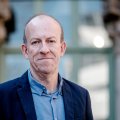
Josep Maria Vilalta Verdu
Director of the Global University Network for Innovation (GUNi) and Executive Secretary of the Catalan Association of Public Universities (ACUP). Specialist in public management and public policies and in higher education and research management. He holds an experience of thirty years on different leading positions on public sector organizations as well as on different higher education institutions. He has promoted and participated in various projects and groups of experts of the Government of Catalonia and the Government of Spain, the European Commission, the OECD, UNESCO, and several countries in education and universities, political science and public policy management.

Estibaliz Saez de Camara Oleaga
PhD in Environmental Engineering and professor in the ‘Environmental Technologies’ area in the Department of Chemical Engineering of the Environment at the School of Engineering in Bilbao. Since 2017 she is the Director of Sustainability at the UPV / EHU. It is in charge of promoting and planning, along with the Vice-Rector for Innovation, Social Commitment and Cultural Action, the lines of action in the field of sustainability and social commitment: management, teaching, research and transfer. It has been in charge of coordinating the EHUagenda 2030 plan for sustainable development, as well as the indicator panel for its monitoring. Furthermore, he is a member of the Basque Council for Development Cooperation and the Advisory Council of the Spanish Network for Sustainable Development (REDS).
Registration fees
| REGISTRATION | Until 02-03-2020 | Until 30-06-2020 |
|---|---|---|
| 0 EUR | - | |
| - | 65,00 EUR | |
| - | 55,00 EUR | |
| - | 20,00 EUR |
Venue
Online streaming
Live online
Sustainable development goals
Agenda 2030 is the new international development agenda approved in September 2015 by the United Nations. This agenda aims to be an instrument to favour sustainable human development all over the planet, and its main pillars are the eradication of poverty, a reduction in equality and vulnerability and fostering sustainability. It is a unique opportunity to transform the world up to 2030 and guarantee human rights for all.

4 - Quality education
Guarantee quality education that is inclusive and equitable and foster opportunities for lifelong learning for everyone. Key issues: free-of-charge, equitable and quality education, access to higher education and training on an equal basis, education for sustainable development, suitable education centres for persons with disabilities, and safe, non-violent and efficient learning environments.
More information

